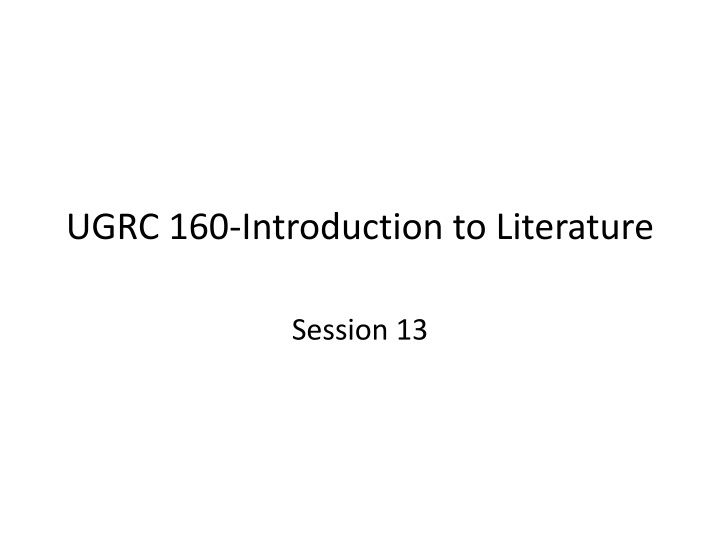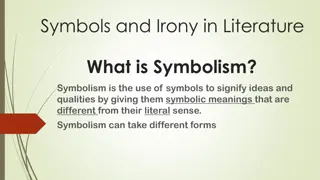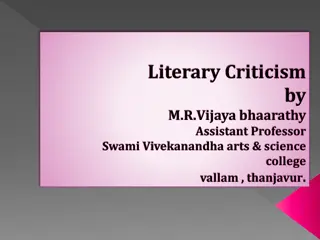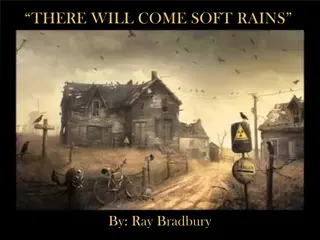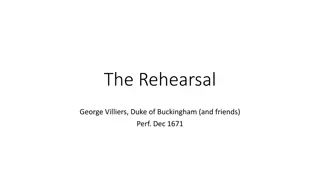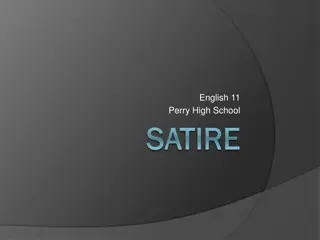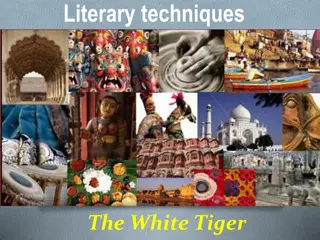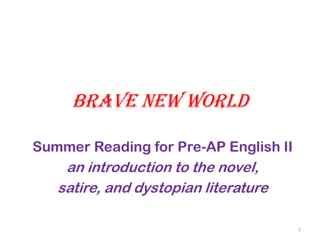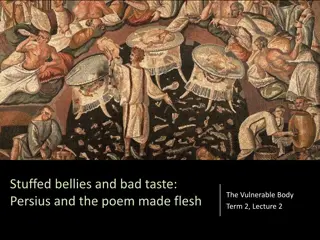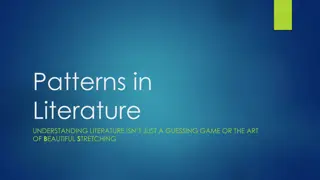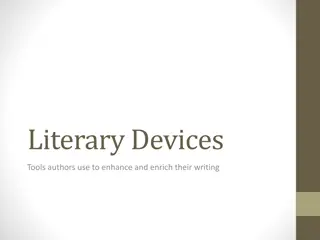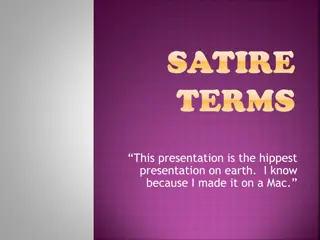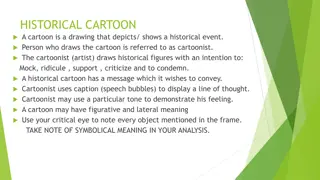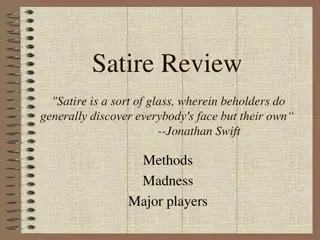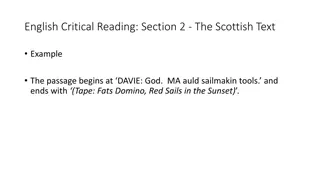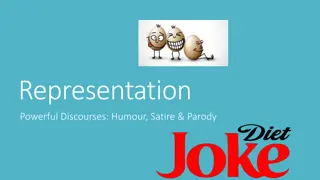Literary Elements Overview: Understanding Style, Symbolism, Satire, and More
Style in literature, symbolizing deeper meanings, and techniques like satire and metaphor are vital literary elements. Explore how authors utilize these tools to enhance their works, creating engaging narratives with rich character development and compelling plots.
Download Presentation

Please find below an Image/Link to download the presentation.
The content on the website is provided AS IS for your information and personal use only. It may not be sold, licensed, or shared on other websites without obtaining consent from the author.If you encounter any issues during the download, it is possible that the publisher has removed the file from their server.
You are allowed to download the files provided on this website for personal or commercial use, subject to the condition that they are used lawfully. All files are the property of their respective owners.
The content on the website is provided AS IS for your information and personal use only. It may not be sold, licensed, or shared on other websites without obtaining consent from the author.
E N D
Presentation Transcript
UGRC 160-Introduction to Literature Session 13
Session Objectives This session is aimed at highlighting and reviewing the essential components of the course. It provides a summary of each of the genres studied and the texts discussed, and also aims at re-emphasizing key concepts discussed in the course.
Remember, Remember. Style in literature describes the peculiar ways in which authors use words or expressions in order to create their final products. Different writers have different styles; for instance, a particular writer may be fond of using long and complex sentences, while another one may opt for simple, monosyllabic words as often as he or she can manage them. Symbol is using an object or action that means something more than its literal meaning. It is, consequently, used to represent a concept or an idea that is larger than what the physical symbol is. For instance, the colour red symbolizes danger. Satire in literature refers to the practice of making fun of human weakness or character flaws. It is a genre of literature in which characters vices, follies, abuses, and shortcomings are held up to ridicule with the intent to shame those concerned. A metaphor refers to a meaning or identity ascribed to one subject by way of another. It is a comparison between two things without the use of as or like.
Remember, Remember, contd. Irony in literature refers to using words or expressions such that the meaning implied of an expression is actually different from the literal or the more obvious meaning. A novel is a narrative of substantial length which portrays characters and usually presents a sequential organization of action. Drama defines a genre or style of writing that is mostly performed for theatre, radio or even television. Poetry refers to the development of usually emotional ideas in the form of verse which may be free, blank, or rhymed. These ideas are intensified by the use of rhythm and other devices. ..
Remember, Remember, contd. Plot refers to the sequence of related events and happenings that make up a story. It is the underlying plan by which characters live out their lives, and through which action develops. Character is any person, animal, thing or figure represented in a literary work. Characters are the inhabitants of literary works. Action refers to the motivations and desires of characters and how these motivations and desires look like when acted upon Conflict in drama refers to a struggle between opposing forces
Remember, Remember, contd. Dramatic techniques include literary devices and staging elements determined by the playwright, director or stage manager which are used to enhance the experience of the audience The subject matter is usually one word or phrase that tells us what material or subject a literary work and its concerns are derived from. It is often confused with the theme but this should not be so. A theme refers to the central idea or message in a work of literature. So, a table might be a subject matter, but what message is being given about the table, at any given time, becomes the theme.
FINAL WORDS This course, UGRC 160, has been about introducing you to the diverse forms of literature and the various elements that go into producing great works of literature. But more than that, the course has also sought to make you appreciate the deeper delights of good literature and equip you with the analytical tools to engage in sophisticated conversation written and spoken about the works selected for this course and those you may meet even beyond.
FINAL WORDS, Contd This is just the beginning, though. Though we wish you all the best in your studies and look forward to all of you doing well in class assignments and final exams, we will be even happier when we see you apply some of the knowledge and the skills you acquired in the class to other domains of social and intellectual challenge. Perhaps some of you will even end up creating literary works of your own, having been inspired by the samples you were introduced to in this course. One can never tell Whatever the final outcomes, let s just say that it was certainly a pleasure to have all of you on board this exciting journey of discovery and cerebral gymnastics.
